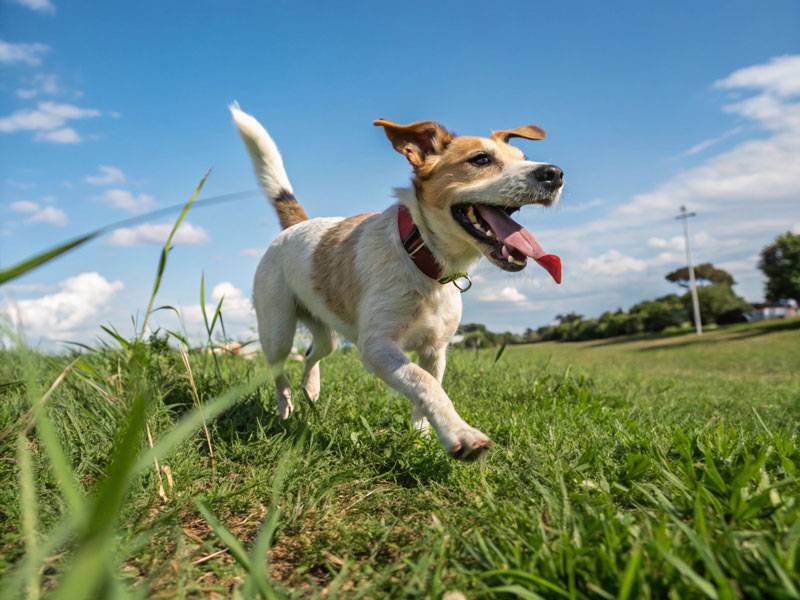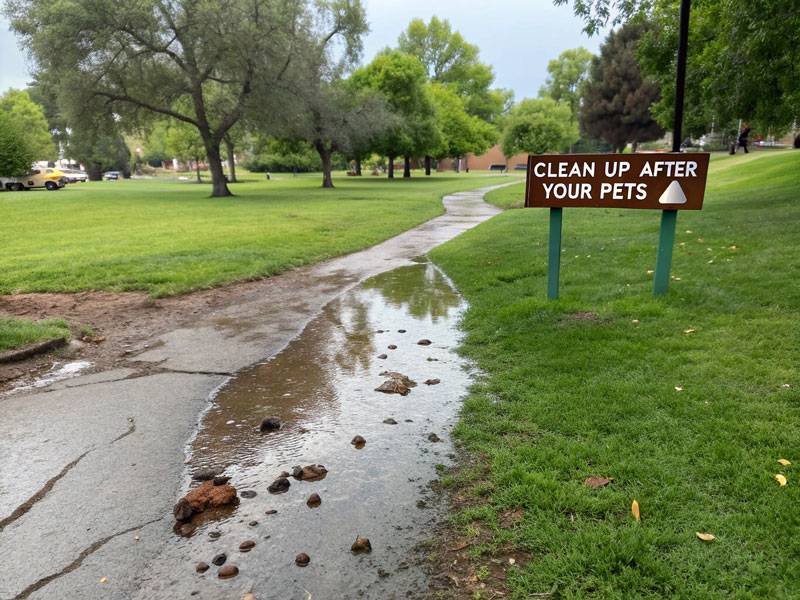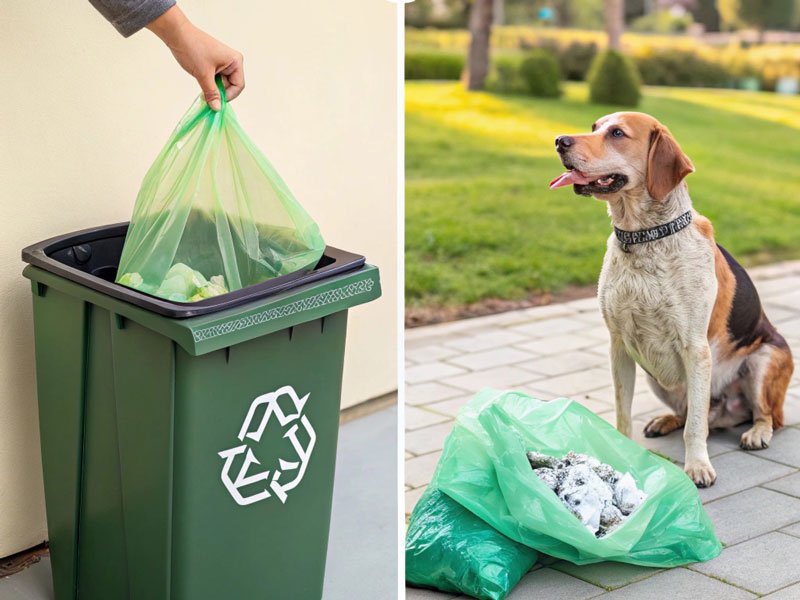As people pay more and more attention to environmental protection and sustainable living, many pet owners are beginning to think about what to do with dog poop. As a nutrient-rich organic material, dog poop seems to be a natural fertilizer. But is dog poop really suitable as a fertilizer?
In this article, we will take a deep dive into the potential benefits and risks of using dog poop as fertilizer and discuss how to use it safely.
Why Dog Poop Isn’t a Good Fertilizer
Acidity and Soil Damage
The high acidity of dog poop can cause damage to lawns and plants, leading to “lawn burn.” This often occurs when dog poop comes into direct contact with the soil, especially in areas of high density. In contrast, herbivorous animal manure, such as cow or horse manure, typically has a more balanced pH and has less impact on the soil.
Dog poop lacks the balanced nutrients to provide essential nutrients to plants. Herbivorous animal manure is typically rich in nitrogen, phosphorus, and potassium, which are essential for plant growth. In contrast, dog poop has an unbalanced nutrient profile and is not effective in promoting healthy plant growth.

Toxic Bacteria and Parasites
Dog poop contains a variety of dangerous pathogens, including Salmonella, E. coli, giant roundworms, and more. These pathogens not only threaten human health, but also pose a serious risk to pets. The U.S. Environmental Protection Agency (EPA) classifies dog poop as a toxic pollutant, further highlighting its potential harm.
Slow Decomposition
Dog feces takes up to a year to fully decompose under natural conditions, which means it will remain in the soil for a long time, leading to a continuous risk of pollution. This slow decomposition property makes dog feces leave a long-term "footprint" in the environment, increasing the possibility of water pollution and soil contamination.
Dog poop contains nitrogen, phosphorus and potassium, which are the main nutrients needed for plant growth. In theory, dog poop can be used as a natural fertilizer to improve soil fertility. However, the actual situation is much more complicated, because the nutritional content of dog poop depends on the dog's diet and health.
- Reduce waste
Using dog poop as fertilizer can reduce the amount of waste entering landfills, which helps reduce environmental pollution and greenhouse gas emissions. By turning dog poop into fertilizer, we can reduce the "carbon footprint" of pets and promote sustainable living. Using dog poop bags to clean up dog poop is an important part of this process. They help keep the environment clean and provide convenience for subsequent disposal.

- Affordable
Dog poop is a free resource suitable for gardeners on a budget. Compared with purchasing commercial fertilizers, using dog poop can save costs, especially for households with multiple pets.
- Recycling
Turning dog poop into fertilizer is an environmentally friendly way to reduce the "carbon footprint" of pets. In this way, we can achieve the recycling of resources, reduce waste and promote environmental protection.

Environmental and Health Risks
Water Pollution
Rainwater can wash dog feces into nearby waterways, causing water pollution. In this case, bacteria and parasites can be spread into the water, endangering aquatic life and affecting human drinking water safety. Therefore, it is crucial to properly dispose of dog feces to prevent water pollution.
HOA and Legal Issues
Many communities and homeowners associations impose strict regulations and fines for uncleaned dog feces. These regulations are not only to maintain community environmental hygiene, but also to prevent health risks caused by dog feces. Therefore, it is important to comply with local regulations on dog feces disposal.
Impact on Pets
Residual dog feces increases the risk of disease transmission between dogs. Especially in public places, such as dog parks or walking trails, uncleaned dog feces can lead to the spread of parasites between pets. Therefore, timely cleaning of dog feces is essential to protect the health of pets.
Proper Disposal Solutions (Including Dog Poop Bags)
Use Compostable Dog Poop Bags
Using compostable dog poop bags is an environmentally friendly way to dispose of dog poop. Regular plastic bags take hundreds of years to decompose, while biodegradable bags can decompose in a shorter time, reducing environmental pollution. When using these bags, make sure the bags are tied tightly to prevent leakage and odor.
Rainwater can wash dog feces into nearby waterways
Disposal Methods
Trash cans: Double bagging can reduce the risk of contamination. Put dog poop in biodegradable bags, then put it in regular garbage bags, and finally throw it in the trash.
Dedicated pet waste stations: Many parks or homeowners association communities have dedicated pet waste disposal stations. These stations are usually equipped with special containers and treatment facilities, which can effectively reduce environmental pollution.
Avoid composting: Dog poop should not be used for composting unless a special digester is used. Because pathogens in dog poop may not be completely killed during ordinary composting, compost products still pose health risks.
Professional Services
If you don’t have the time or desire to deal with dog waste yourself, consider hiring a professional cleanup service. These services typically provide regular cleanings to ensure your yard or neighborhood is clean and safe.

Eco-Friendly Alternatives to Fertilize Your Garden
Organic Fertilizers
Worm castings: Worm castings are organic matter decomposed by earthworms, rich in nutrients and beneficial to plant growth.
Rock powder: Rock powder is a natural mineral fertilizer that can provide trace elements required for plant growth.
Certified organic compost: Through a proper composting process, organic waste can be converted into nutrient-rich fertilizer。
Herbivore Manure
Manure from herbivorous animals, such as cow or horse manure, is a safer, nutrient-rich fertilizer option. This manure is usually properly processed to reduce the presence of pathogens while providing the nutrients that plants need to grow.
Soil Testing
Before using any fertilizer, it is important to perform a soil test to ensure that the soil's pH and nutrient levels are balanced. This will not only help in selecting the right fertilizer, but will also help avoid environmental problems caused by over-fertilization.
Conclusion
Dog poop is not a good fertilizer choice. It is highly acidic, contains many pathogens, and decomposes slowly, posing serious risks to the environment and health. It is very important to dispose of dog poop properly. We can use biodegradable dog poop bags and choose appropriate disposal methods, such as garbage cans or dedicated pet waste stations.
Exploring environmentally friendly fertilizer alternatives is also a good choice. Organic fertilizers and herbivorous animal manure can provide the nutrients needed for plant growth while avoiding the risks posed by dog poop.





